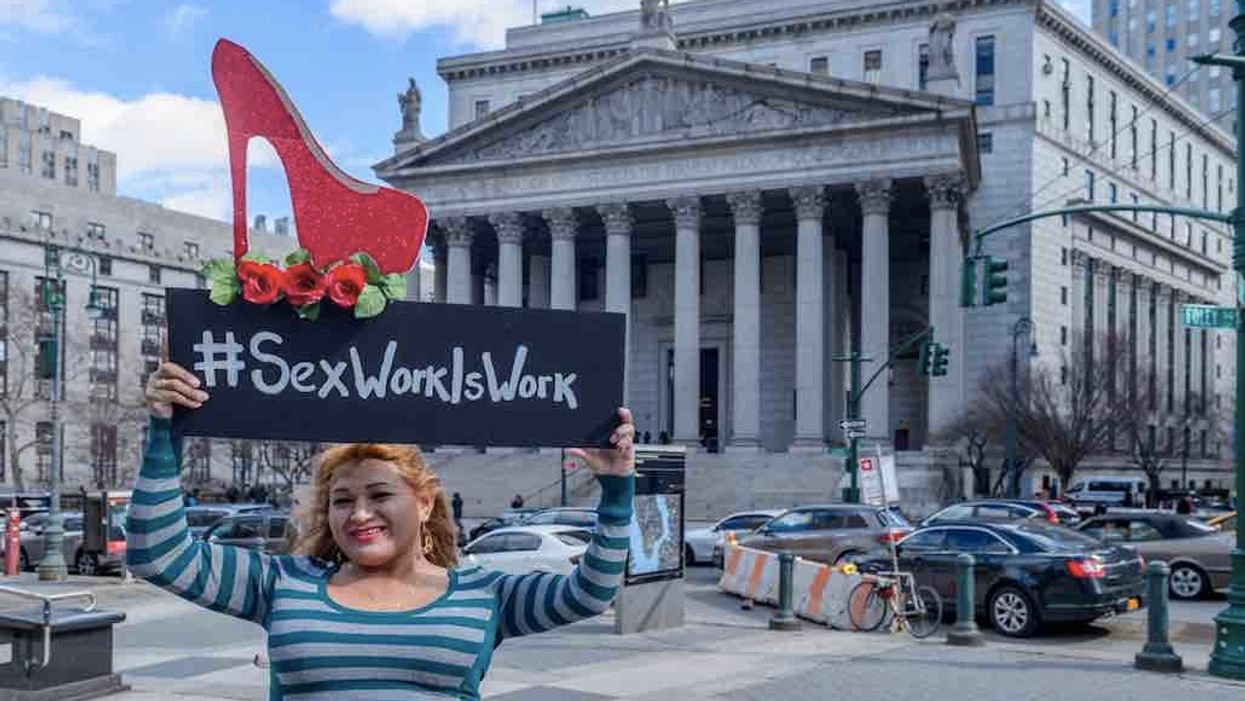
Photo by Erik McGregor/Pacific Press/LightRocket via Getty Images

'People whose living has been sex work have been unable to interface with any government assistance'
As TheBlaze has previously reported, the coronavirus economic shutdown has been hitting sex workers' bank accounts like many other people.
How desperate has it become? Well, after a Portland strip club called the Lucky Devil Lounge had to close up shop, the owner switched the outfit to a food-delivery service called Boober Eats — which, of course, features scantily clad strippers carting hot food to patrons' homes.
Commenting on sex workers' loss of business — which has left most of them ineligible for jobless benefits and struggling to make ends meet — a sex worker advocate told the Chicago Tribune in a story about the overall impact on the area's sex-work industry that it's all very unfair.
"It's kind of like the way the pandemic has laid bare all the inequities in society, especially the economic ones," Kathy Rosenfeld of Sex Workers Outreach Project Chicago told the paper. "For sex workers whose livelihood is precarious in the best of times, it has exacerbated the [instability] of our lives."
She also appeared to decry that sex work is "criminalized" — and told the paper that such treatment works against those in the profession when economic times are tough.
"Since sex work is a criminalized industry, there isn't the kind of paper trail that federal agencies are looking for," Rosenfeld noted to the Tribune. "I would say it goes case by case, but in a lot of cases, people whose living has been sex work have been unable to interface with any government assistance."
Sex Workers Outreach Project Chicago endeavors to raise money to help sex workers short on cash — but it can't do much more than hand out small amounts, such as $50 for groceries, the paper said.
"I don't know of any organization dedicated to sex workers that has resources to really make a long-term difference in people's lives economically," Rosenfeld noted to the Tribune.
Manisha Shah — a University of California at Los Angeles public policy scholar who's written about sex work economics — told the paper that the industry isn't likely to return to the way it operated any time soon.
"I don't think sex work will go back to its pre-pandemic state even when stay-at-home orders ease, as potential clients will still feel wary of in-person meetings," Shah noted to the Tribune. "It will likely take longer, perhaps even until a vaccine, before people feel comfortable interacting in person for sex services."